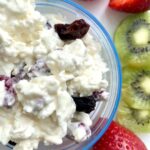|
Getting your Trinity Audio player ready...
|
Lecithin is the main component of the membrane that covers the lipids or fats in our body and is used to maintain said membrane. It is the main component of lipoproteins, such as LDL ("bad" cholesterol) and HDL ("good" cholesterol). Lipoproteins, including lecithin, are responsible for transporting fat and cholesterol in the blood.. The main sources of lecithin in foods include: beef liver, egg yolk, soybeans, peanuts, spinach, legumes (beans, kidney beans), and wheat germ.
Lecithin Supplements
Lecithin supplements are derived primarily from soybeans and are a mixture of different fats. This type of lecithin is also used as a stabilizer or emulsifier in margarine, shortening, dressings, cookies and pastry products. In these products, lecithin allows two ingredients that cannot ordinarily be mixed, such as oil and water, to be combined.
Lecithin in supplements and foods is broken down in our intestines by the enzyme lecithinase. This process does not allow lecithin (from any source) to help lower blood cholesterol levels, as some think. However, lecithin in supplements has been used with some effectiveness in the treatment of Alzheimer's and Parkinson's. These conditions are associated with a decrease in the neurotransmitter acetylcholine. This neurotransmitter requires the vitamin choline in its structure and choline is part of lecithin. However, reliable scientific literature on this association is very scarce.
Lecithin and Alzheimer's
Lecithin is converted into the neurotransmitter acetylcholine and its consumption increases the concentrations of this neurotransmitter in the brain. A study published in 2014 in the magazine Advances in Therapy demonstrated “a positive influence on memory, mood, and cognition” after 90 Alzheimer's patients took a soy lecithin supplement. This supplementation also "showed a stabilizing effect on daily functioning, emotional state, and self-reported general status" in these patients.
Lecithin and Parkinson's
A study published in 1980 in the Journal of Neural Transmission (volume 47, pages 319-335) concluded that the progressive dementia of Parkinson's disease could be reversible. Researchers treated 10 Parkinson's and dementia patients with an average of 20 milligrams of lecithin daily, along with their levadopa (Parkinson's medication) treatment. The patients showed "a decrease in symptoms of confusion, hallucinations and nightmares."
Lecithin and Fatigue. A study published in 2018 in the Nutrition Journal found that high doses of lecithin (1,200 mg/day) increased energy in a group of 27 women aged 50 years (average) who complained of tiredness (fatigue). It also reduced their diastolic blood pressure.
Side effects. Lecithin appears to be safe as a supplement at doses of up to 30 grams daily for up to 6 weeks. The side effects observed have been diarrhea, nausea, stomach pain, and feelings of fullness or satiety. Lecithin may cause allergic reactions in people with egg or soy allergies.
Summary: Lecithin supplementation appears to be safe except in people with egg and soy allergies. However, there is not enough scientific evidence to justify lecithin supplementation, despite promising research in Alzheimer's, Parkinson's, and fatigue. It is at the consumer's discretion whether or not to use the supplement.










